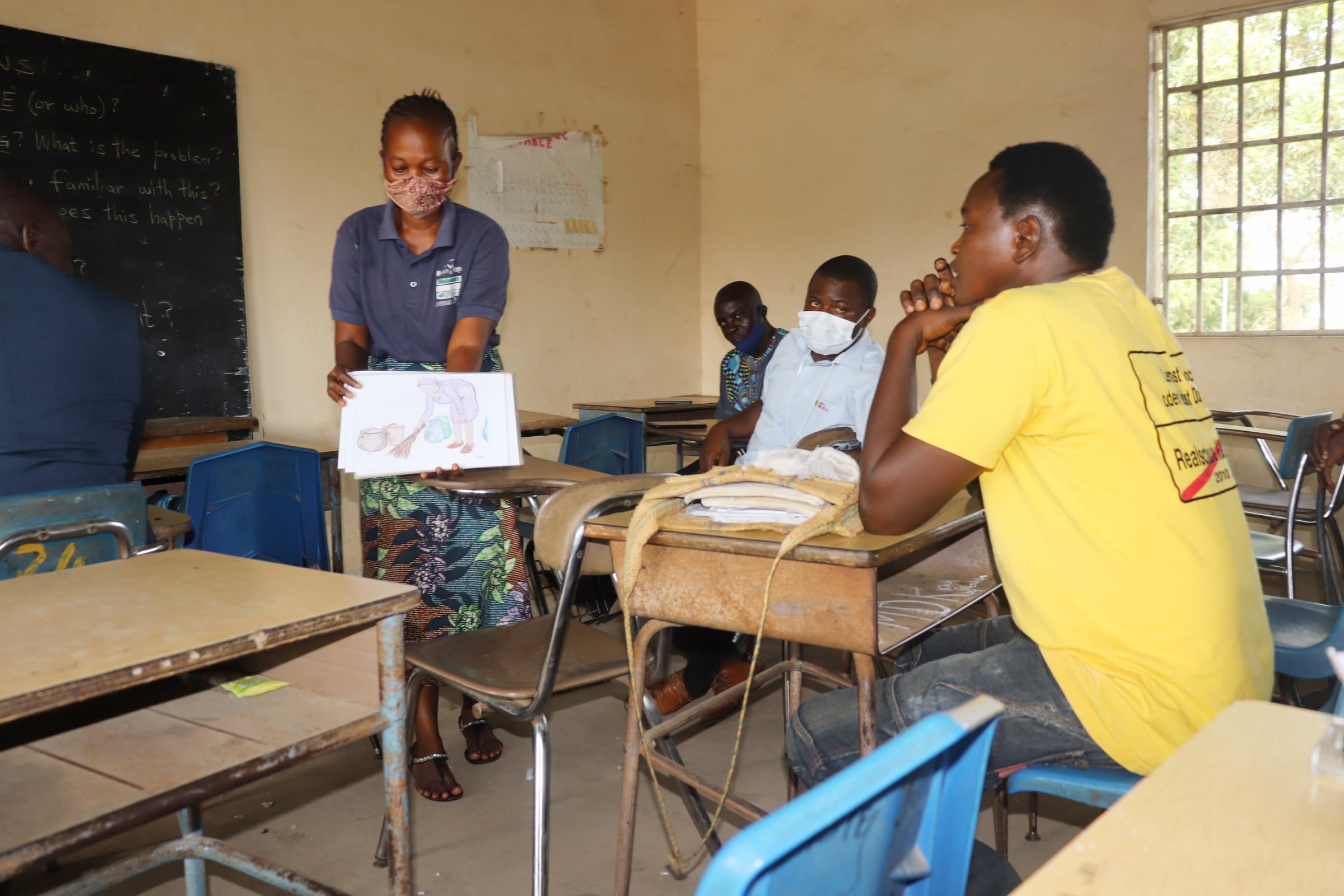The Saint Augustine Secondary School was started in 1984 by the late Brother Bill. It started with less than 200 hundred students occupying five classrooms at the Saint Augustine Primary school. Its main school curriculum is based on Agriculture, and the impact agriculture makes in people's lives in Sierra Leone. There is still a functioning agriculture program that has improved and continues to improve the lives of students, parents, and teachers who have been taught the latest and modern skills in agriculture.
With a school population exceeding 1,000, the need for a constant supply of clean and safe water is paramount.
The main water source at St. Augustine Senior Secondary School is within the school compound. Still, it is slowly failing, with climate change taking its toll on the availability of water. The main well has never dried but has experienced a reduction in the water table year after year. With the reopening of schools, the current status of the water well will not provide adequate water for all the students and staff.
"With a water source that is seasonal or without adequate water, I am always left with having to take frequent water breaks from water fetched at another source. The disruption takes valuable practice time away from my students," said teacher Peter Mustapha.
Our teams' major concern is the students drinking water from a less desirable source before and after coming to school due to a lack of confidence in getting water during the school day. The health consequences related to the use of contaminated water include diarrhea, cholera, dysentery, typhoid, and worm infection for both students and teachers.
The school uses a great deal of water when in session due to its sheer population. The current dropped water table prevents access to water as needed.
" Standing in line waiting for a turn to fetch water at certain times during the year is one that takes away from class and study time. As a lower-level student, the burden of bringing water to the classroom falls on us and one I am not particular to embrace," said Fatama, a 16-year-old student.
Here’s what we’re going to do about it:
Well Rehabilitation
The well marked for this overhaul is dry for a few months every year and needs major work to supply adequate, clean water to the community year-round. The pump will be removed, and a hand auger will be lowered inside and powered by a drill team. This hand auger will allow the team to drill several meters deeper to hit a sufficient water column to ensure the well supplies water throughout all seasons.
As the team drills, they will install the casing, transforming the bottom of this hand-dug well into a borehole. PVC piping will connect this lower system directly to the pump, a construction that we know will also improve the quality of water.
Once this plan is implemented, everyone within the community will have access to safe drinking water in quality and quantity, even through the dry months.
Hygiene and Sanitation Training
There will be hygiene and sanitation training sessions offered for three days in a row.
After our visit, the hygiene and sanitation trainer decided it would be best to teach community members how to build a tippy tap (a hand-washing station built with a jerrycan, string, and sticks). They will use these tippy taps for handwashing demonstrations and will also teach about other tools like dish racks and the importance of properly penning in animals.
This training will also strengthen the water user committee that manages and maintains this well. They enforce proper behavior and report to us whenever they need our help solving a serious problem, like a pump breakdown.

 Borehole Well and Hand Pump
Borehole Well and Hand Pump


































